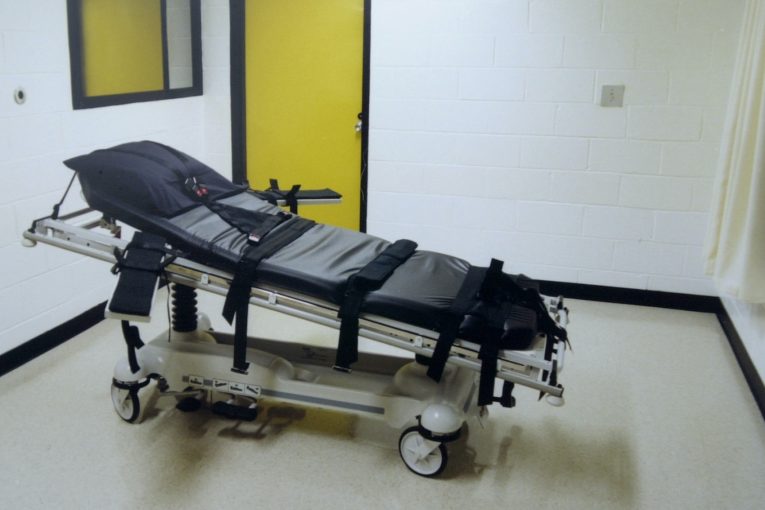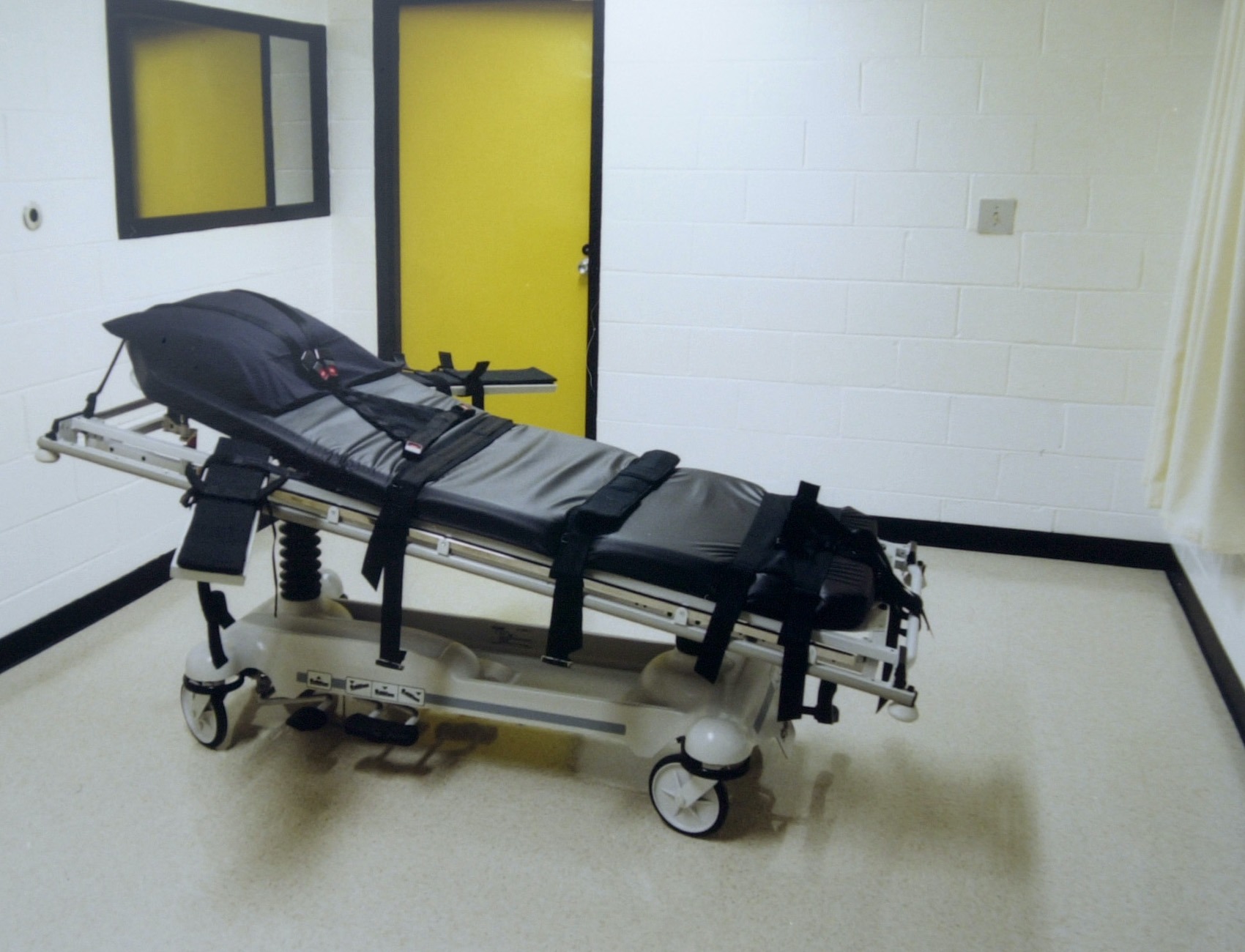

By Julian Verdon
TERRA HAUTE, IN – Decades ago, an all-white jury sentenced Orlando Hall, who is Black, to death for murder, despite his attorneys stating that the jury did not hear critical facts about him or the case and that one of the prosecutors is known for barring Black citizens from serving on juries.
Hall—who is scheduled to be executed Nov. 19 in the Terra Haute U.S. Penitentiary—and four others were charged for murdering Lisa Rene. Hall has been in custody and on death row for over two decades.
According to Hall’s attorneys, Marcia Widder and Robert C. Owens, he suffered from mental disabilities that impair his judgment, which should exempt him from the death penalty under the U.S. Constitution.
“The popular belief that the federal death penalty is reserved for terrorists and spies is mistaken. [. . .] And several people with intellectual disability remain under a federal death sentence, even though they should be constitutionally exempt from execution,” they said.
The Supreme Court found that the death penalty would be a form of cruel and unusual punishment for those with intellectual impairments in their ruling in Atkins v. Virginia. The Supreme Court cited the higher probability of inaccurate admissions of guilt for the mentally impaired because they would unwittingly admit to something they did not commit.
Widder and Owen also argue that Hall’s former trial lawyers took his case “on the cheap” and defended him poorly. Both his current attorneys say that Hall’s court-appointed lawyers spent around two-thirds the time prepping for his case when compared to other defense teams on similar cases.
Also, Hall’s current attorneys stated that his old counsel did not conduct a thorough investigation into Hall’s life.
“Thus, jurors were unaware when they sentenced Mr. Hall to death that he had been the target of severe and long standing physical mistreatment by his father, that he suffers from brain impairments that undermine his judgment, or that he originally became involved in the illegal drug trade because, as a teenager, Mr. Hall found himself unable to support his younger brothers when his mother abandoned the home,” stated Widder and Owen.
Widder and Owen also wanted it known that Hall had done heroic things in the past, such as save his three-year-old niece from drowning by jumping from a motel’s second floor to the swimming pool.
Moreover, Hall faced difficulties when trying to appeal his former trial attorney’s poor performance. At the time, the trial judge allowed his former attorneys to write lengthy statements in response to the appeal.
“The judge then credited [his former] trial counsel’s self-serving statements as true without ever giving Mr. Hall’s new lawyers an opportunity to confront or cross-examine [his former] trial counsel in open court – despite the fact that documentary evidence submitted by Mr. Hall’s new lawyers indicated that some of the assertions in trial counsel’s written statements were almost certainly false.”
When it comes to the sentencing, Hall’s attorneys cited the racial bias involved. “In the years since Mr. Hall’s trial, the U.S. Supreme Court has expressly found that this very prosecutor, in a trial that preceded Mr. Hall, discriminated against Black potential jurors on account of their race and then lied under oath in an attempt to conceal his racist conduct,” according to Hall’s attorneys.
When assembling the jury for Hall’s possible death sentence, the defense counsel retained four Black jurors. However, after the Black jurors faced questioning by the prosecution’s Paul Macaluso (who only joined the prosecution for jury selection), the court struck all of them.
“The defense argued that the prosecution’s action was based on the jurors’ race, but the trial judge rejected the challenge without requiring Mr. Macaluso to justify on race-neutral grounds his decision to strike those Black jurors from service, as was required by the U.S. Constitution. Instead, the court accepted a series of perfunctory, fumbling, and often inaccurate secondhand explanations for the strikes from a different prosecutor altogether,” according to Hall’s current defense team.
The ruling denied Hall an explanation from Macaluso personally about why the Black jurors could not sit on the jury to decide whether he lives or dies.
According to Hall’s attorneys, Macaluso has discriminated against Black jurors in several other cases. They state that the U.S. Supreme Court found that Macaluso had repeatedly engaged in racially-motivated strikes against Black jurors and later lied about his actions. He was also found by Texas courts to have discriminated against Black jurors in another case.
This year, the Inter-American Center for Human Rights found that Macaluso’s participation in Hall’s death sentence, “a violation of [Hall’s] basic right to equality before the law under the American Declaration of the Rights and Duties of Man.”
Both Widder and Owen state Hall’s sentence signifies the larger problems with the federal death penalty targeting certain racial groups, of which 60 percent are minorities, with 45 percent Black.
Hall’s case signifies the uphill battle for those on death row.
“Moreover, federal death row prisoners routinely complete all available appeals without ever receiving searching consideration of their claims by the federal courts, or – like Mr. Hall – without even having an opportunity to present evidence about ineffective counsel, prosecutorial misconduct, and other serious problems in their trials,” said Widder and Owen in a press release.
On July 17, the Justice Department decided to resume federal executions after a 17-year break. Hall’s death sentence will be the eight carried out this year by the federal government.
The resuming of executions came amid a push from the Trump administration, which was initially blocked by a lower court citing that the lethal injection could subject the prisoner to cruel and unusual punishment. However, the current Supreme Court struck down this claim, and the federal executions proceeded.
Both Widder and Owen stated their stance on the federal death penalty.
“The systemic problems reflected in Mr. Hall’s case, as well as other serious flaws in the federal death penalty system, should serve as a message to the Department of Justice, the Supreme Court, and Congress that the system of federal capital prosecutions is broken beyond repair.”
To sign up for our new newsletter – Everyday Injustice – https://tinyurl.com/yyultcf9
Support our work – to become a sustaining at $5 – $10- $25 per month hit the link:





